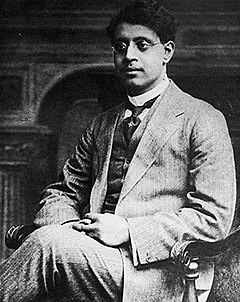The Sagacious Woody

Behold! The old beardy hunches over his pot – He licks up, in broad daylight, his damp woods stewed hot! He shakes his head, keeps muttering hymns like a mage – From his ways, you would think he’s no less than a sage! Blabbers all day long – you’d wonder from where they stem – “The sky’s full of cobwebs, so woods have holes in them.” He raises his bald head and beads of sweat run down, “Nobody can fathom its gravity –” he’d frown, “These foolish dunderheads, to such matters purblind, Don’t seem to take in – always wrangling in their mind. Which wood has more essence – blind to facts such simple – Why on eleventh lunar days, woods get dimple.” Scribbled around all o’er, in fact, is his account Of cracked woods and notched woods – he loses not a count! Which hole tastes delicious, and which hole’s insipid, Which crack gives off fragrance, and which one smells horrid. Clunk! Clank! Clackety-rattle! He knocks wood with wood, And says, “I know which wood in what way gets subdued. Paying a...



Comments
Post a Comment